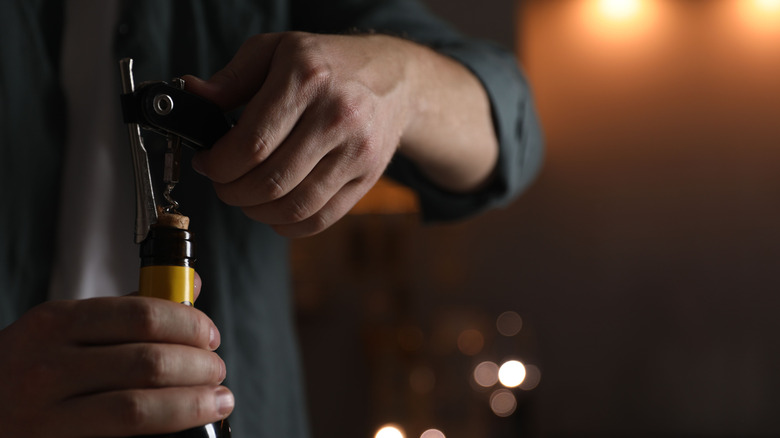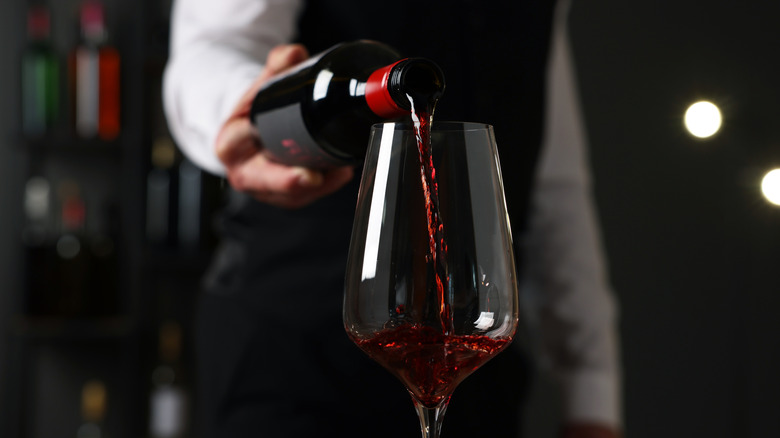What Should You Be Paying For Corkage Fees At A Restaurant, And Why Do They Have Them Anyway?
If you've ever brought your own bottle of wine to a restaurant, you probably noticed that you were charged a corkage fee on the bill. So much for trying to save money by bringing your own bottle. For a long time, I couldn't understand why an establishment would charge customers just for taking the cork out of a bottle and pouring the initial glass of wine. But whenever a customer brings their own wine, the restaurant is losing out on potential revenue. We spoke to restaurant owner and author of "Maricel's Simply Asian Cookbook," Maricel Gentile, who explained the reasoning behind these charges.
"Corkage fees help offset lost revenue from the restaurant's wine list," Gentile told The Takeout. "Plus they cover service costs such as glassware, plateware, and staff time to chill, pour, and plate wine accompaniments. They also discourage customers from bringing cheaper bottles to a place that invests in its own pairings." In other words, a bottle of cheap Trader Joe's wine may not accentuate the flavors of a tasting menu the way wines from the restaurant will.
Basically, if you're not going to buy wine from the restaurant, it'll still cost you. Gentile also mentioned that customers can expect higher corkage fees at upscale locations, suggesting, "Their wine program comes with higher overhead such as sommelier salaries, cellar investment, and premium glassware." (By the way, the wine list can tell a lot about the quality of a steakhouse.)
How much can you expect to pay for a corkage fee?
Corkage fees range from $10 to $20 at casual eateries, while upscale restaurants are more in the $25 to $50 range. That can certainly make people pause to consider if it's worth bringing a bottle of wine from home after all. On the other hand, if you bring the vintage wines that gave Costco customers sticker shock, $50 may be no big deal. "It's always best to check in advance rather than get surprised," said Gentile. Many restaurants will list their corkage fee on their website, but if you can't find the answer this way, simply call the restaurant ahead of time to inquire about the cost.
Her advice for those who are trying to avoid a corkage fee? "Ask politely when booking, as some managers will make exceptions for special occasions or when you're ordering significant food or beverage from their menu."
Depending on where you live, or where you are eating out, you may also find that BYOB is simply not allowed at certain restaurants. And this isn't always because the eatery wants you to buy what's on their menu. Certain states, cities, and jurisdictions can have laws prohibiting bringing your own booze to a restaurant. Reiterating Gentile's advice, it's always a good idea to reach out to or look up any given restaurant's BYOB policy before you show up with your own bottle of wine.

